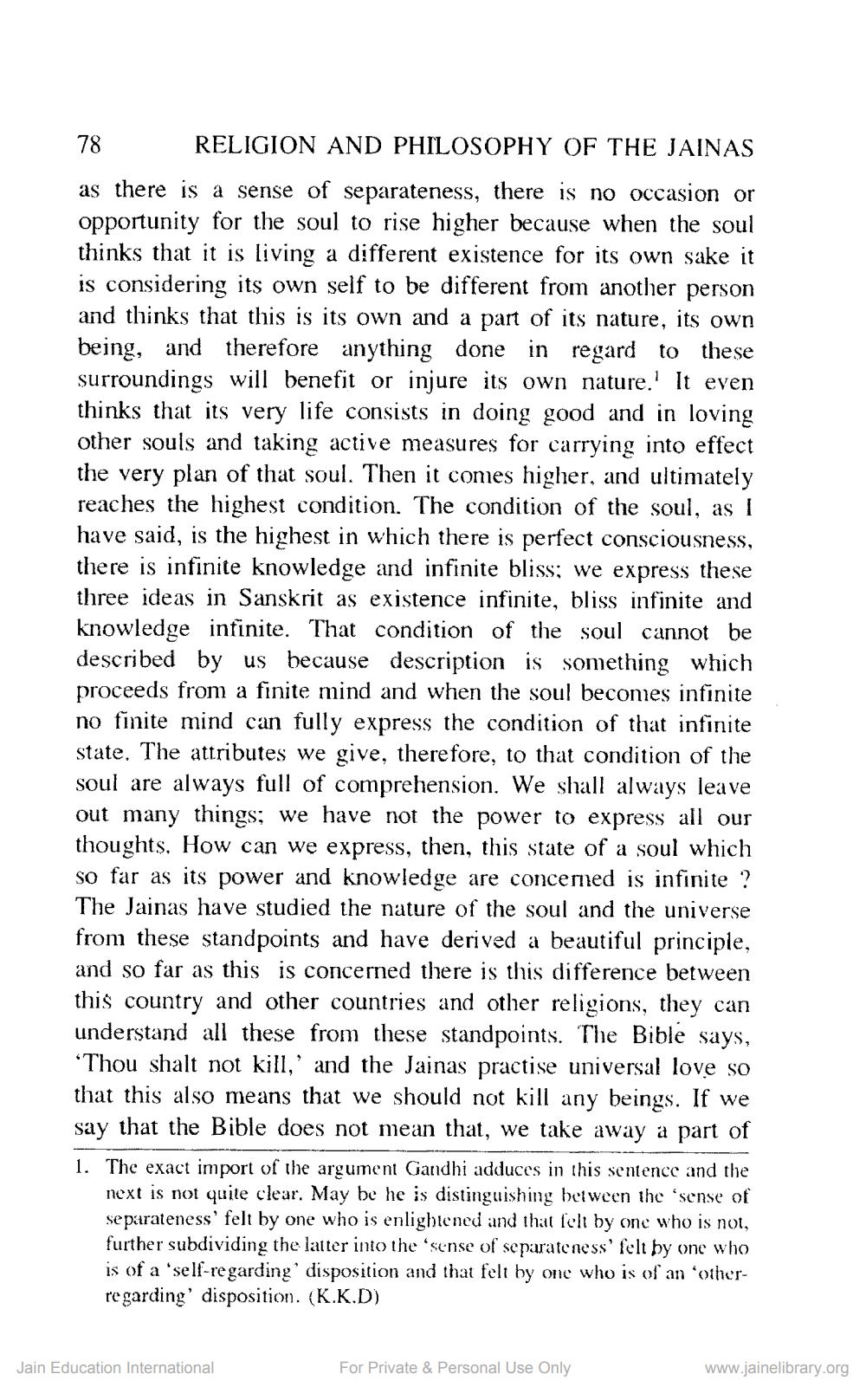________________
78 RELIGION AND PHILOSOPHY OF THE JAINAS as there is a sense of separateness, there is no occasion or opportunity for the soul to rise higher because when the soul thinks that it is living a different existence for its own sake it is considering its own self to be different from another person and thinks that this is its own and a part of its nature, its own being, and therefore anything done in regard to these surroundings will benefit or injure its own nature.' It even thinks that its very life consists in doing good and in loving other souls and taking active measures for carrying into effect the very plan of that soul. Then it comes higher, and ultimately reaches the highest condition. The condition of the soul, as I have said, is the highest in which there is perfect consciousness, there is infinite knowledge and infinite bliss; we express these three ideas in Sanskrit as existence infinite, bliss infinite and knowledge infinite. That condition of the soul cannot be described by us because description is something which proceeds from a finite mind and when the soul becomes infinite no finite mind can fully express the condition of that infinite state. The attributes we give, therefore, to that condition of the soul are always full of comprehension. We shall always leave out many things; we have not the power to express all our thoughts. How can we express, then, this state of a soul which so far as its power and knowledge are concemed is infinite ? The Jainas have studied the nature of the soul and the universe from these standpoints and have derived a beautiful principle, and so far as this is concerned there is this difference between this country and other countries and other religions, they can understand all these from these standpoints. The Bible says, “Thou shalt not kill,' and the Jainas practise universal love so that this also means that we should not kill any beings. If we say that the Bible does not mean that, we take away a part of
1. The exact import of the argument Gandhi adduces in this sentence and the
next is not quite clear. May be he is distinguishing between the sense of separateness' felt by one who is enlightened and that felt by one who is not, further subdividing the latter into the sense of separateness' felt by one who is of a 'self-regarding' disposition and that felt by one who is of an 'otherregarding' disposition. (K.K.D)
Jain Education International
For Private & Personal Use Only
www.jainelibrary.org




